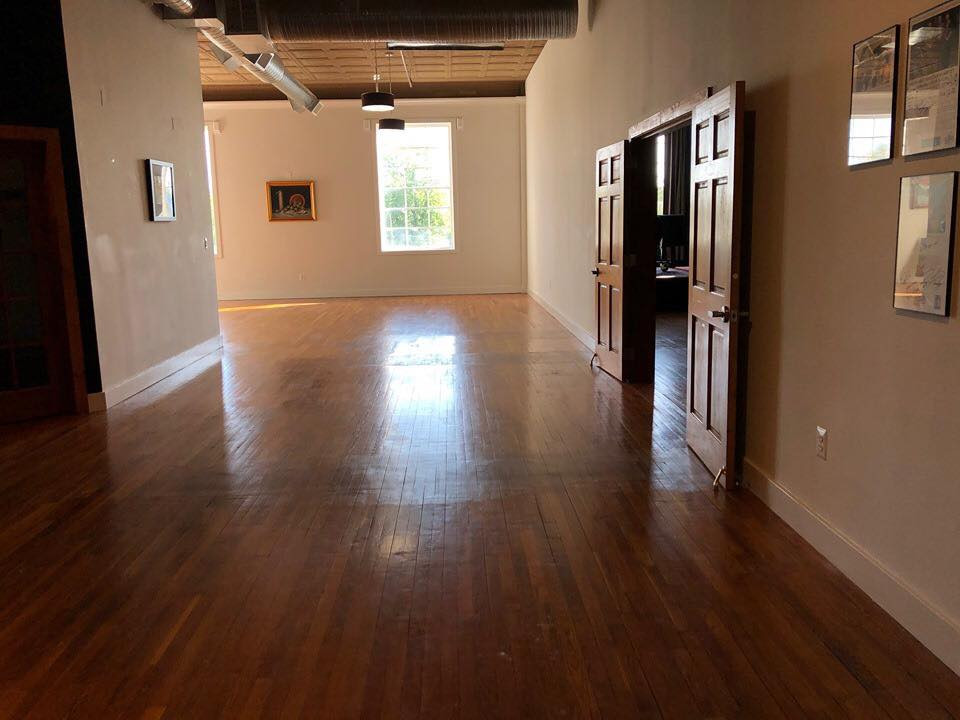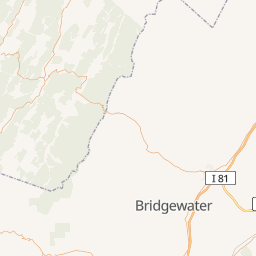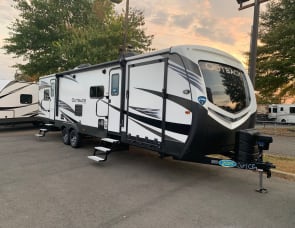When I first bought my RV, I wasn’t sure how much it would cost to stay at a campground. I wasn’t sure if I should boondock or go to an actual campsite.
Campgrounds in Warrenton Virginia: Campendium has reviews of Warrenton RV parks, state parks and national parks making it your best Warrenton RV camping resource. Campgrounds in Warrenton on YP.com. See reviews, photos, directions, phone numbers and more for the best Campgrounds & Recreational Vehicle Parks in Warrenton, VA. This RV campground in Max Meadows, Virginia boasts spacious sites that can accommodate any sized rig, most of which are pull-throughs. With a convenient location right off of I-77 and I-8, Fort Chiswell RV Park is the perfect spot to stay, whether you’re just stopping for a night on your way through town, or looking for a comfy home base to explore southwest Virginia! Description - Family owned campground located high in the Blue Ridge Mountains. Camping available April - October. Sites from tent camping to full hook-ups. We have a country store with cafe, stocked trout ponds and cabin rentals, which are open year round.

In general, RV campsites cost between $25 and $80 per night depending on the location, the size of the space, and what connections are offered. In my experience, an average camper trailer spot with power and water costs about $45 a night.
Of course, that’s just what I’ve experienced during my travels. You may find the prices are lower or higher through your own adventures. Have you ever wondered why that is? I’m going to tell you.

In this article, I’ll share the price of parking and lodging at 15 campsites in states across the country. Then, I’ll explain why these prices fluctuate as well as tips for saving money during your camping adventures.
Next time you plan your trip, you should have no problem finding an affordable campsite and saving money as you go.
15 Popular Campsites: Average Prices
The following prices for these 15 campsites are the most recent, typically from 2016 or 2017. Prices may be lower or higher than projected and are per night:
- Camp Gulf; Destin, Florida — For the upper park site and north upper park, between $65-$85 in winter, $90-$120 in spring, $97-$126 in summer, and $67-$90 in autumn
- Durango RV Resort; Red Bluff, California — $50-$60, with a daily use fee ($5), fee for each extra visitor ($3), guest fee ($3), and extra vehicle fee ($2)
- Zion River Resort; Virgin, Utah — For a back-in standard, $35-$50 in winter, $60 in summer, and $50 in autumn
- Oak Grove Resort Campgrounds; Holland, Michigan —For premium sites, $55 in the spring and fall, $60 during the summer, and $65 during the holiday season
- The Springs at Borrego RV Resort and Golf Course; Borrego Springs, California — $64 – $84 from October to mid-January, $77-$101 for late January through late April
- Mill Creek Ranch Resort; Canton, Texas — $162-$255 year-round
- Libby’s Oceanside Camp; York Harbor, Maine — $60-$100 with visitor fees ($3), additional adult fees ($5), additional child fees ($3), and additional vehicle fees ($5)
- Wagonhammer RV Park & Campground; North Fork, Idaho — $37 year-round with additional visitor fees ($6) and additional vehicle fees ($8)
- Sea & Sand RV Park; Depoe Bay, Oregon — $64-$80 in summer, $54-$69 in spring, $44-$59 in winter
- Polson Motorcoach & RV Resort; Polson, Montana — $60-$100 in spring and autumn, $90-$225 in summer
- Five Pines Camping & Recreation; Farmington, Pennsylvania — $10-$38 year-round
- Grand Canyon Camper Village; Grand Canyon, Arizona — $41 in winter (November 1st through April 1st) with a 50-amp full hookup and $56 in summer (April 1st through November 1st) with a 50-amp full hookup
- Doc’s RV Park; Gulf Shores, Alabama — $40 year-round, with an additional $40 for monthly RV storage if desired
- Camp Hatteras RV Campground and Resort; Waves, North Carolina — $43-$45 from January through mid-March, $65-$75 for late March through late May, $81-$110 for late May through early September, $63-$75 for early September through late November, and $43-$45 for late November through early December; you’re charged for each child ages six through 18 ($4), each extra adult ($8), each pet ($3), and for cable TV ($3)
- Americamps RV Resort; Ashland, Virginia — $40-$50 for a back-in site RV (with 30/50 amp electrical, cable TV, Wi-Fi, sewer pumps, and water pumps), $50-$60 for a pull-thru site RV (with 30/50 amp electrical, cable TV, Wi-Fi, sewer pumps, and water pumps), $55-$69 for a concrete site RV; you also have to pay $3 for each extra passenger you bring
What Influences Campsite Prices?
If you look at the price to stay at the above 15 campgrounds, you’ll see there’s some minor fluctuations. You’ll also notice these prices fit squarely within the range I mentioned in the intro. Some places, like Five Pines Camping & Recreation in Pennsylvania and Wagonhammer RV Park & Campground in Idaho, are ridiculously cheap. You can room at those RV parks for less than $50 a night! That’s a steal and definitely worth considering if you’re out that way.
Then you look at campsites like Mill’s Creek Ranch Resort in Texas or Libby’s Oceanside Camp in Maine and you’re going to have to splurge if you want to stay at those…even for one night.
So why the fluctuations in price? There are many factors at play here that influence campsite pricing. Let’s unpack each one.
State Taxes
Some states let you shop tax-free while others don’t.
Then there’s personal or individual income taxes, which are often paid by taxpayers like you or I. In most of the United States, residents have to pay this income tax annually, typically around tax time. That said, there are some states that don’t make use of personal income taxes.
Those states are:
- Wyoming
- Washington
- Texas
- South Dakota
- Nevada
- Florida
- Alaska
Campground Amenities
When some campgrounds have the word “resort” in their name, they really mean it. These campgrounds are like RV heaven, so to speak. No matter what you need, you can typically find almost every amenity you could hope to dream for, such as running water, plumbing, heating and air conditioning, electricity, refrigerators/freezers, an oven or microwave to cook, and maybe even a washer and dryer. You could even have a bedroom TV!
Staying at these resorts is almost like going on vacation, they’re that luxe. Of course, for all the elegance and comfort you’d enjoy, you’re going to pay for it. Like, literally.
These resorts typically don’t even include their rates on their websites (I did look), probably to avoid scaring away casual RV owners. Trust me though when I say you’re going to pay a lot, even nightly. Is that within your budget? That’s up to you to decide.
Full Hookup Campgrounds In Warrenton Virginia Hotels
Compare these expensive resorts to a little hole-in-the-wall (figuratively) RV park in a smaller state that’s not a tourist trap. These smaller campsites not as well-known, and they don’t have as much to offer, sure, so they’re going to make their rates much lower. You’ll still have a place to park your RV at the end of the day, but you’re going to have to live without some luxuries.
Time of Year
The time of year plays a huge role in how much bang for your buck you’re going to get when you stay at an RV park for a night or weekend. Obviously, the warmer the weather gets, the more these campsites are going to jack up their prices.
You can see this in action in many of the 15 examples above. Is the new black dating in lino lakes minnesota zip. You’re sometimes paying twice the rate to stay on the campground from April through September. If you go in the colder months or even brave the winter, you can stay for next to nothing.
State Pricing
Full Hookup Campgrounds In Warrenton Virginia County
Some states are notoriously more expensive to live and stay in than others. For example, a one-bedroom apartment in New Jersey may be about $1,400 a month, but in North Carolina it might be about $600. The apartments are pretty much the same size, but because it costs more to live in New Jersey, apartments there cost more.
RV campsites are essentially the same way. More expensive states will often insist you pay more to lodge at their campgrounds.
The best advice I can give here is to do your research. If you know a state has a high cost of living, you should reasonably expect to pay more for a campground, even without all the great amenities. If that’s outside your budget, keep looking.
Type of RV
Depending on the type of RV you’re driving and what kinds of extra features and hookups it has (such as electricity, running water, and more), you may pay extra. Again, see the examples above. Back-in site RVs are typically the cheapest option available, with other RV types costing more.

Worried about your RV fitting in a state park campsite? Here, you can find an article I wrote where I give the ideal RV length for fitting into National Park campsites.
Duration of Your Stay
Although I’m only focusing on daily RV campground rates, sometimes you can get a better overall deal with a monthly package. Of course, that would mean planning a longer trip, which is not always financially feasible.
Extra Passengers/Stuff

Most of the 15 RV campgrounds listed above charge extra for each passenger or pet you bring. It’s not a very expensive fee and is often under $10. Some campgrounds will slap you with an extra visitor fee as well, which is again cheap. Also, if you’re bringing more than one vehicle, prepare to pay for that as well.
If this is an issue (which it may be for some thrifty RV owners), you can limit your passengers, leave pets at home, and research fees ahead of time.
Tips for Saving Money on an RV Campground
Now that you know what goes into the average rate of a daily stay at an RV campground, you might want to make some smarter decisions with your money. After all, living the RV life isn’t always cheap, so anytime you get the chance to save a few bucks, you should certainly do so.
Here are the tips I’ve found are great for those who want to pinch some pennies:
- Stay at an RV campsite during the off-season. You’d be amazed how picturesque Mother Nature can be in many states across the country during the autumn and even the winter months.
- If you’re concerned about freezing your buns off at a campsite from September through November (and even into early December), then head south. States like Texas, Florida, and California experience mild autumns and winters. There’s no (or, if any, very little) risk of snow, and you might only need a light jacket instead of your winter coat, a scarf, and gloves.
- Plan the most inexpensive route from where you are now to your campsite. If you save money on gas and travel, you might not mind splurging a bit for a nicer campsite to park for the night. You can plan your trip via an app or even the built-in maps on your phone.
- Again, research, research, research. The 15 campsite pricing examples above are just the tip of the iceberg. There are so many more campsites out there for you to explore and fall in love with. Remember, if a campsite doesn’t have its rate listed on its website, that’s probably because you’re going to pay a lot for lodging.
- Cook on your RV whenever you can. Fast food may seem cheap at the time, but the costs of all that junk do amount to something significant with time.
- Start your own portable garden or grow one back at home and harvest fresh fruits, vegetables, and other edible delights. You’ll save money on produce, which can be notoriously expensive and go bad fast.
- Don’t leave your RV on overnight during your stay at the campsite. Instead, consider using solar panels or a generator to get power to your vehicle when you turn it off. Otherwise, if you don’t have these, you’re going to burn through gas quick and could risk a dead battery in the morning.
- If you’re not already a member, join an RV club. These typically offer deals on campsite lodging and help you save money in other ways. Some options include Passport America, Good Sam, Casino Camper, BoonDockers Welcome, RV Golf Clubs, and Harvest Hosts.
- If you want to save your gas, get on the road in the middle of the night or very early in the morning, long before rush hour. Fewer vehicles are on the road at that point, which means less traffic. The less time you’re on the road stuck in traffic, the less fuel you use.
- Go slower when appropriate. You increase your miles per gallon if you achieve a speed of at least 40 miles per hour (to about 29 mpg). Of course, if the road sign says you have to drive faster, then follow that speed recommendation.
- Make sure your tires are inflated and your tire pressure reading is good. Your fuel burns up 1.2 percent faster with underinflated tires than with fully-inflated tires.
Conclusion
If you’re new to staying at campsites, you can sometimes have quite a shock when you look at the rates from one campsite to another across the country. Factors like the state where you’re staying, the time of year, and the amount of time you’re staying can all determine how much you’re going to have to shell out for lodging.
That doesn’t mean you should avoid RV campsites entirely, though. After all, you have to stop driving sometime, and these campsites are typically cheaper than staying in a hotel. You can also connect with others in the RV community.
Be smart about your campsite decisions to save the most money.
With the 15 campsite rate examples I provided, you can see how prices fluctuate depending on all sorts of factors. Use this information to your advantage when planning your trip.
Also, follow the tips I mentioned above on saving money where you can. This way, even if you do encounter a more expensive campground, you’ll be able to afford it without blowing the budget for your trip.
Happy travels!
[author title=”About the Author” style=”font-family:lato;”]
| |||||||||||||||||||||||||||||||||||||||||||||||||||||||||||||||||
| About Us Contact Us Advertise Terms and Conditions Privacy Policy ©2008 When We | |||||||||||||||||||||||||||||||||||||||||||||||||||||||||||||||||